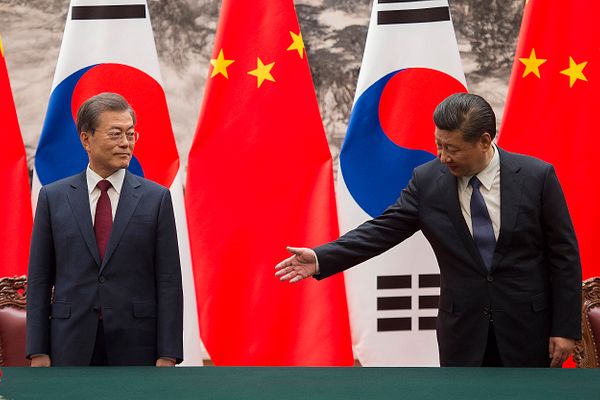South Korea’s iconic Blue House has a new occupant — Yoon Suk-yeol ,the country’s 20th President. Will it have any impact on Seoul’s ties with Beijing?
Observers say China and South Korea established diplomatic ties between them in the 1980s. Since then, they have come to boost their ties in numerous sectors. Yoon’s predecessor Moon Jae-in tried to balance relations between the United States, his nation’s key security guarantor and China, its economic partner. South Korea-China ties may worsen during Yoon’s presidency.
Yoon appears all set to move closer to the United States, which views China as its potential challenger for world leadership. In his presidential campaign, he criticised Moon for undermining Seoul’s all-important relationship with Washington.
Beijing sent Wang Qishan, Chinese vice-president and close ally of the communist nation’s supremo Xi Jinping, to attend the inauguration of new leader Yoon’s presidency in Seoul. Beijing may be aiming to dissuade Yoon from following through on his electoral campaign promises to take a harder line against China.
But such gestures are highly unlikely to work. Relations between China and South Korea hit a new low in 2017 after Seoul announced its intention to deploy an American anti-ballistic missile defence system, known as the Terminal High Altitude Area Defence( THAAD), to counter growing threats from North Korea, China’s all-time ally. Beijing objected to this, saying it could be used to limit China’s military capabilities. Yoon is likely to be tougher on the THAAD issue. In his presidential campaign, he indicated expanding this system.
Besides, Yoon is inclined to repair Seoul’s ties with Tokyo—a move Beijing may not like. Seoul- Tokyo ties have been strained, particularly since South Korean courts began hearing compensation claims from Koreans forced to work for Japanese occupiers during the Second World War. Japan maintains the issue was fully resolved in 1965 with a one-off payment of $300 million.
Indications are relations between Seoul and Tokyo may get better. On May 10, Oxford-educated Japanese Foreign Minister Hayashi Yoshimasa attended Yoon’s presidential inauguration. During his Seoul sojourn, he delivered a personal letter from his Prime Minister Kishida Fumio. The letter is believed to have stressed Japan and South Korea have no time to waste “in improving” their ties.
Besides, Yoon is an ardent advocate of freedom and democracy, a theme hardly to the liking of communist China. South Korea today is a major economic power ranking 10th in the world. It leads the world also with its dramas, movies and K-pop. Yoon seems to be fully aware this prosperity owes a lot to the atmosphere of freedom in his country.
In his inaugural speech, President Yoon urged his people to think “as global citizens” and “stand” against any attempt to “take our freedom away, abuse human rights or destroy peace….”
( The author is a New Delhi-based journalist )



















Comments